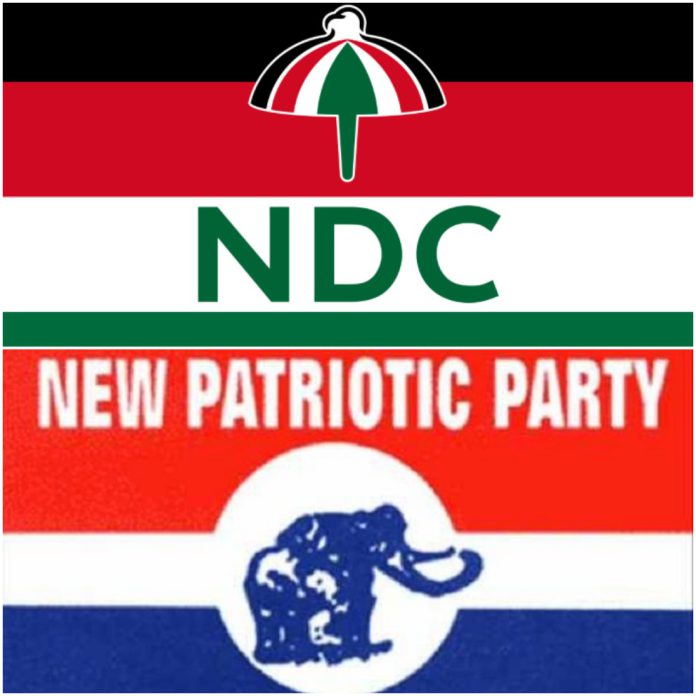The governing New Patriotic Party (NPP) has served notice that its manifesto for this year’s election will be launched on August 18.
As of this writing, its main rivals, the National Democratic Congress (NDC) launched a Youth Manifesto designed to address issues facing the youth yesterday, August 12, 2024, after which, I assume that an all-encompassing manifesto will be launched.
I am sure the other political parties will follow suit. Which issues should the parties address this year? Here is a list of my top six issues.
The importance of manifestos
Let me first address the importance of manifestos. Do voters care about the manifestos of political parties? To what extent do these manifestos shape the way voters decide which candidate to vote for?
How many voters read the manifestos of political parties?
Keep in mind that before political parties release their manifestos, candidates would have made several promises to voters during campaign events in cities, towns and villages.
The manifestos end up containing many of these promises. Essentially, voters usually have an idea of what to expect. And frankly, there are voters whose minds may already have been made up before these manifestos are released.
The key importance of manifestos, in my estimation, is that they serve as a social contract between political parties and voters in which the former promises to deliver a set of policies and programmes if elected to office.
Once elected, the winning party is expected to follow through on these promises. Ideally, this social contract should have two consequences – a) rewards (re-election) if promises are kept and b) punishment (non-election) if the promises are not kept.
As to whether this happens is a conversation for another day. Now to my key expectations and the specific issues of concern I want to see addressed.
My key expectations
Unemployment continues to be a top priority for Ghanaians. This is captured well by the Afrobarometer survey. There have been many job initiatives over the years by various governments which appear not to have satisfactorily addressed the issue.
FLASHBACK: The NDC 2020 manifesto
What the parties must put forth this time is a different set of policy and programme ideas. They must also demonstrate the extent to which it will make a difference. Ghanaians do not need a recycling of old policies and programme ideas.
Agriculture. Our parties often tout the importance of agriculture to our economic growth and job creation efforts. However, in a recent multidimensional poverty report by the Ghana Statistical Service, the data showed that the incidence of poverty among heads of households in agriculture is at least four times higher than for those in industry and services.
How do our political parties plan to address this disproportionate impact of multidimensional poverty on the agriculture sector?
Education.
There is currently before Cabinet a bill to provide legislative backing for the Free Senior High School Education programme. Since its introduction, the programme has generated strong and sometimes opposing views among Ghanaians.
In addition to the cost of the programme, the programme faced some implementation challenges such as adequacy of infrastructure for which a double track system had to be instituted in response.
I expect the manifestos to go beyond the commitment of support for the programme. Our parties must show specifically how they plan to a) ensure financial sustainability and b) respond to the implementation challenges.
Corruption. Every election, parties promise to fight corruption. However, each governance cycle following elections continues to grapple with alleged acts of corruption.
And with allegations of corruption and forthcoming election comes new promises of fighting corruption if elected. It is a vicious cycle. The question is how long will this vicious cycle continue?
I expect the manifestos to show how differently the fight will be prosecuted, especially allegations of in-regime corruption.
Health.
The commitment to developing and expanding the country’s health infrastructure is admirable. I expect the manifestos to address the cost of accessing quality healthcare.
I do not discount the importance of the National Health Insurance Scheme. Nonetheless, the cost of quality healthcare remains a challenge. How do our political parties plan to address this in a financially sustainable way if elected?
Ghana’s Governance and Democracy Architecture. We often praise Ghana’s democratic stability and rightly so. However, our parties must address some of the deterioration in the quality of the country’s democracy and governance architecture captured by various indices.
Specific steps are needed for how they plan to address deteriorating signals such as a) weak institutions (low trust and high perceptions of corruption as per Afrobarometer); b) growing dissatisfaction with the way democracy is working (as per Afrobarometer); c) fiscal irregularities (as per the Auditor General’s report); and d) disapproval of central government’s handling of key economic and social issues (as per Afrobarometer).
The writer is the Project Director of Democracy Project.
Source:Graphiconline

